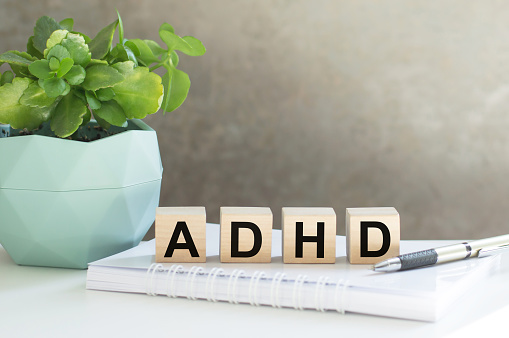ADHD Therapy
Is Your Neurodivergence Leading To Burnout?
As someone with diagnosed or suspected Attention-Deficit Hyperactivity Disorder (ADHD), are you experiencing job burnout? Do you dread returning to work at the end of the weekend? Does your lack of interest in completing mundane tasks, such as housework or scheduling necessary appointments, cause conflict with your partner?
When it comes to being task-driven and detail-oriented, you might feel like a square peg in a round hole. Although you can appreciate why these qualities are highly valued in the workplace, perhaps you’ve never been able to achieve a work ethic that warrants praise. For you, repetitive tasks that require organization and follow-through have always seemed boring and unfulfilling. While others around you seem passionate about their jobs, you may struggle to remain motivated and engaged. Instead, you tend to hyper-focus on only what interests you.
 You May Resist The Idea Of Having To Take ADHD Medication
You May Resist The Idea Of Having To Take ADHD Medication
Whenever you miss a deadline, forget an appointment, make a mistake, or veer off task, you might feel embarrassed and wonder why your brain works differently than others. Even though you have put the same amount of time into your education and training, you may be frustrated that it’s harder for you to prioritize what’s important.
Although taking a stimulant may help you stay focused, you might be bothered or ashamed by the idea that you need medication to function. Perhaps you don’t take your medication consistently because of its side effects, and instead, cherry-pick times when it is most needed. This may lead to mixed results and cause friction with your partner or concerns about inconsistent performance at work.
If following a regimented schedule remains challenging, ADHD therapy can help identify what your most common struggles are and provide helpful coping strategies. With friendly and compassionate support that incorporates psychoeducation and Acceptance and Commitment Therapy (ACT), ADHD no longer has to hold you back.
Many People Live With ADHD
An umbrella study published in Science Direct concluded that ADHD is relatively high in adults. With five systematic reviews and meta-analyses that included over 21 million participants in all, “these studies indicated that the pooled prevalence of ADHD in adults was 3.1 percent.” [1]
Although we are learning more about ADHD, higher-functioning people with neurodiversity often have their symptoms mistaken for trauma, anxiety, or depression. For example, girls with ADHD are less likely to be diagnosed in school because their neurodivergence presents with subtler symptoms than their male counterparts. As a result, they often reach adulthood before realizing they have ADHD.
Neurodivergence Can Be Challenging In The Workplace
Typical work environments are not neurodivergent-friendly and can be challenging for the ADHD brain to navigate. With many workplaces centered around deadlines, procedures, and processes, those of us with ADHD may fall behind and feel like we’re constantly being called out for our procrastination or lack of follow-through. Unfortunately, working from home presents its own set of challenges.
 Whether we spend too much time seeking extra stimulation from social media or going down rabbit holes on the internet, smartphones can be a significant culprit for losing focus. Surrounded by technology, we have the potential to be constantly distracted. And when we’re home, our distractions only multiply by being within arm’s reach of all the “shiny objects” we’d rather focus our attention on.
Whether we spend too much time seeking extra stimulation from social media or going down rabbit holes on the internet, smartphones can be a significant culprit for losing focus. Surrounded by technology, we have the potential to be constantly distracted. And when we’re home, our distractions only multiply by being within arm’s reach of all the “shiny objects” we’d rather focus our attention on.
Whether you work in an office or at home, ADHD therapy can provide you with the tools to become more accountable, focused, and motivated. By appreciating your strengths and identifying your values, you can find better ways to function and stay on task.
Therapy Equips With You The Tools To Make Living With ADHD Easier
Living with ADHD comes with blind spots. Although you might resist addressing how neurodivergence impacts your behavior, not taking action could be holding you back. As “attention deficit” implies, your ability to stay focused and remain on task is compromised by the impulse to direct your attention elsewhere. Making decisions that could be beneficial, like preparing for an interview or scheduling a doctor’s appointment, may require a level of motivation that eludes you.
In therapy, you will have a safe space to talk about how ADHD affects you with a therapist who can normalize and validate your experience. You will be encouraged to be open and honest about the anxiety and guilt you may experience when procrastination or getting off task creates issues at work or friction with loved ones. Within the safe environment of therapy, you can identify your strengths and deficits, experiment with skills and strategies without judgment, and establish realistic expectations for yourself.
What To Expect In Sessions
Initially, we will determine what your most common struggles are and how ADHD is decreasing your effectiveness in various areas of your life. Psychoeducation will help build understanding and insight about the ways neurodivergence impacts your daily functioning, helping you recognize the limitations—as well as remarkable strengths—that come with ADHD.
Behavioral strategies, such as calendars, notes, and schedules, will equip you with organizational systems that will help you prioritize what needs to happen and when. Implementing hands-on tools will instill confidence that you now have the strategies to be effective each day and take the pressure off you. Using mindfulness, you will also learn how to stay in the present moment and avoid impulsive behaviors and distractions.
Error: Contact form not found.
The Modalities We Use For Adult ADHD Treatment
 I incorporate evidence-based modalities into ADHD treatment, including Cognitive Behavioral Therapy (CBT), Acceptance and Commitment Therapy (ACT), Solution-Focused Brief Therapy (SFBT), and mindfulness. Many people with ADHD wait to feel motivated to do a task. However, it takes a cognitive shift to occur to realize the best strategy is to start the task knowing that the motivation will follow. With CBT for ADHD, we will explore what you tell yourself about tasks that your natural inclination is to avoid, allowing us to dismantle core beliefs that lead to procrastination and replace them with a more proactive mindset.
I incorporate evidence-based modalities into ADHD treatment, including Cognitive Behavioral Therapy (CBT), Acceptance and Commitment Therapy (ACT), Solution-Focused Brief Therapy (SFBT), and mindfulness. Many people with ADHD wait to feel motivated to do a task. However, it takes a cognitive shift to occur to realize the best strategy is to start the task knowing that the motivation will follow. With CBT for ADHD, we will explore what you tell yourself about tasks that your natural inclination is to avoid, allowing us to dismantle core beliefs that lead to procrastination and replace them with a more proactive mindset.
ACT helps you hone on in what you care about and be intentional about choosing to do things that matter. Whether or not the tasks associated with what’s important are enjoyable, ACT helps you acknowledge how meaningful they are when aligned with your core values. Additionally, ACT can help you cultivate self-compassion by alleviating the shame and blame associated with ADHD, allowing you to recognize that your experiences, feelings, and desires make sense.
The good news is that ADHD is treatable. In therapy, we can identify ways for you to be more productive and effective, both professionally and personally. Realizing that it’s possible to accomplish what’s necessary as well as do what interests you will help you shift how you think about ADHD and feel more in control of your outcomes.
But You May Wonder Whether ADHD Therapy Is Right For You…
Can ADHD counseling really help me?
Since Attention-Deficit Hyperactivity Disorder is a condition that cannot be "cured," it’s understandable to assume there is no reason to consider therapy. But ADHD counseling for adults is the best way to harness your neurodivergence and work with your strengths. Therapy will increase your understanding of ADHD and how it impacts you. We will discover ways for you to improve your daily functioning, increase your motivation, and avoid procrastination and burnout.
In addition to ADHD therapy, should I also be taking medication?
Once ADHD treatment is underway, we will track your progress. If you are struggling to achieve your desired goals with therapy alone, then we can discuss the option of ADHD medication assessment and management. Although there is no one-size-fits-all formula for treatment, many adults with ADD find it helpful to combine stimulant medication with therapy.
Once I begin adult ADHD treatment, will I keep meeting with a therapist indefinitely?
Many people think that once they seek treatment for ADHD, it means they will always be in therapy. However, adult ADHD can be successfully treated within a relatively short timeframe. If you prioritize and commit to weekly appointments and follow through with recommendations, then you're likely to see the benefits in 4-6 months.
Don’t Let Your Blind Spots Get In The Way Of Being More Productive
Allow us to help you overcome your challenges. To find out more about ADHD therapy with Colorado CBT, please visit our contact page to schedule a free 15-minute consultation.
Latest posts

Telltale Signs You May Have ADHD

Recently Diagnosed With ADHD or ADD? What To Do After The News

